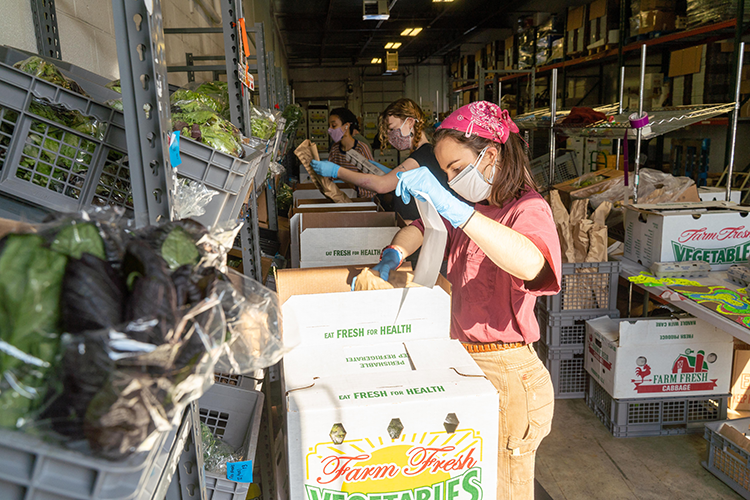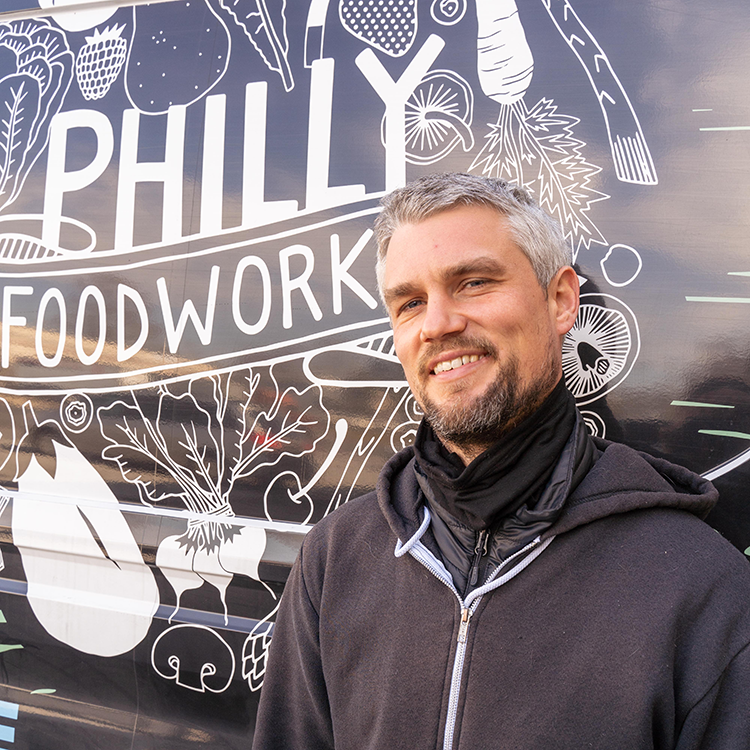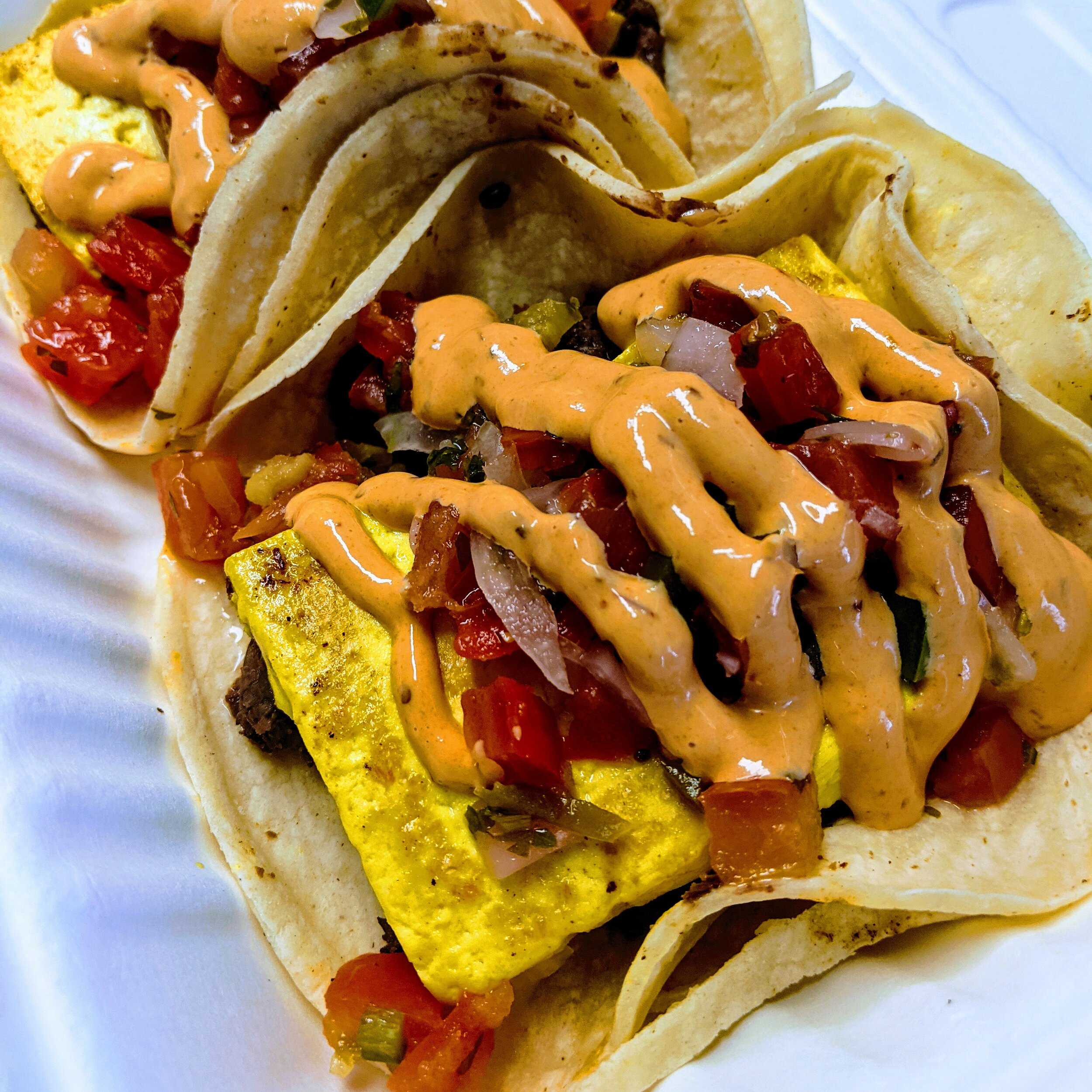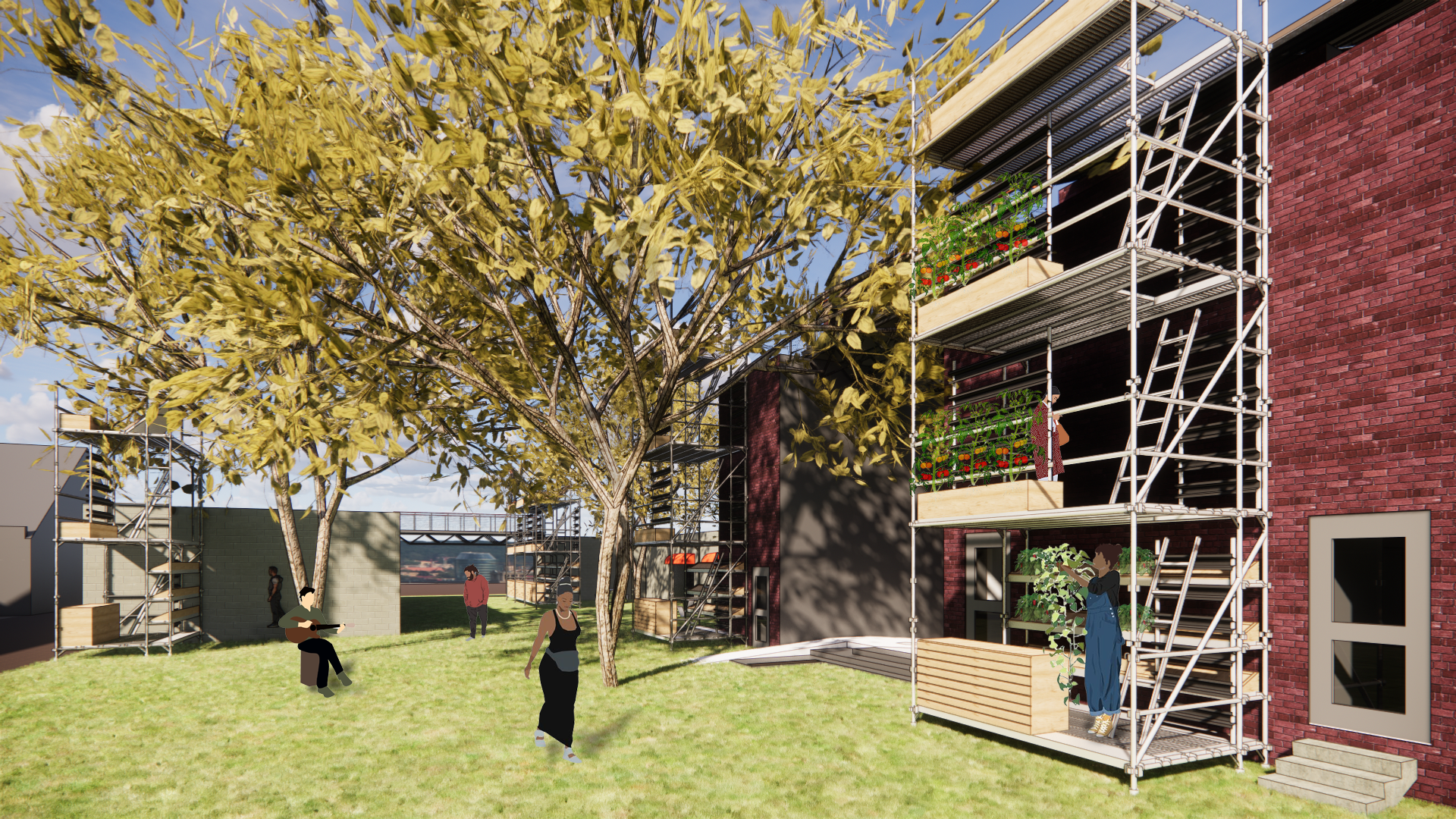In March 2020 customer sign-ups at Philly Foodworks grew 50 times in just one week. Last year, overall, customer orders and customer sign-ups tripled when compared to 2019.
“People were placing $600 fish orders,” Dylan Baird, Philly Foodworks co-founder and CEO, says.
Baird credits some of this growth in his online business, which home delivers locally-sourced organic produce, meat and fish, to panic buying early in the pandemic.
“There were 4,000 more people who were interested in this type of service,” Baird says.
Baird wasn’t the only local food entrepreneur that saw a dramatic spike in interest. According to nonprofit news organization Civil Eats, farmers selling through CSAs (community supported agriculture) reported “a massive increase” in memberships across the country.
Primal Supply Meats, which has built a supply chain connecting local farmers and slaughterhouses to customers around Philadelphia, is another local company that saw sales skyrocket. Primal Supply’s membership program, The Butcher’s Club, doubled in 2020.
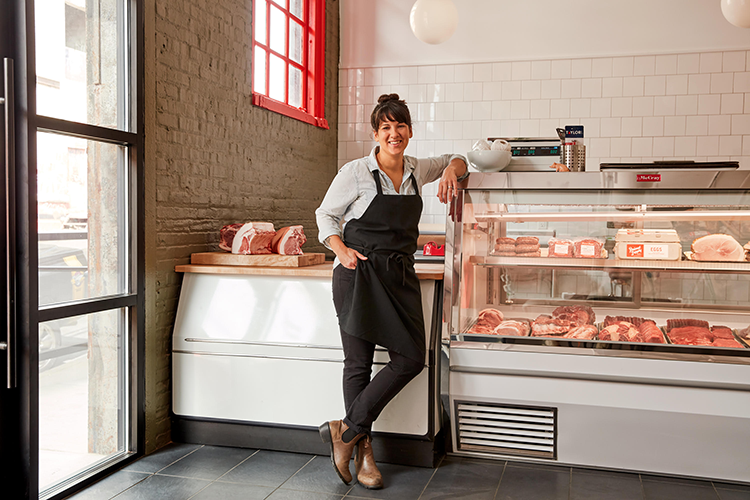
Heather Marold Thomason, founder of Primal Supply, believes that disruptions in the food supply chain revealed just how exploitative and unsustainable industrial meatpacking is.
Pre-pandemic, meatpacking plants and slaughterhouses were a hyper-efficient piece of the food supply chain. However, though they were efficient, they were not able to adapt to change quickly.
Between March and May of 2020, 23 states reported COVID-19 outbreaks across 239 meatpacking and poultry processing plants. Employee illness and plant shutdowns in turn disrupted these supply chains.
“I think a lot of people asked the right questions about
what their food dollars are supporting…”— Heather Marold Thomason, founder of Primal Supply Meats
Many poultry, hog and cattle farmers had a surplus of animals, but could not get their livestock slaughtered and processed. Some farmers had to euthanize animals because if they continued to grow they would be too large for processing plants when they reopened. Euthanizations and shutdowns led to lost profits. The beef cattle industry specifically lost about $9.2 billion in revenue sales in 2020.
Meanwhile, many customers stockpiled groceries in the early months of the pandemic due to fear of food shortages. Some retailers responded to increased customer demand by price gouging essential groceries.
“I think a lot of people asked the right questions about what their food dollars are supporting—an unhealthy industrial system that doesn’t support the workers or the animals within it, or a transparent local system that supports … these things,” Thomason says.
By comparison, local food systems adapted more easily to changes in the market.
Loren Pola, Philly Foodworks produce buyer and planning manager, saw this firsthand in the spring of 2020. As many farmers markets shut down and restaurants shifted to takeout-only, farmers turned to Philly Foodworks.
“Farmers were pivoting and we had the capacity to take [their crops],” Pola says.
When Philadelphia-based mushroom farm Mycopolitan Mushroom Company’s restaurant clients began to close, their sales dropped by about 90% overnight. They relied on Philly Foodworks to connect with a reliable customer base.
“We felt a certain responsibility because we identify our role as supporting our local producers and developing the supply chain,” Baird says.
Baird believes Philly Foodworks’ commitment to setting produce prices with farmers and buying what farmers produce helped build their reputation.
“We don’t necessarily pay the top dollar but we say what we’re going to do. A lot of farmers don’t care if so-and-so’s paying an extra 25 cents a bunch,” Baird says.
Instead, many farmers seek out buyers who will purchase the amount of crops they produce. Philly Foodworks works with farmers to determine how much of each crop they will buy that year and how much they will pay for it.
Pola set out to diversify the products Philly Foodworks could carry in 2018, creating a spreadsheet to track what each farmer would be growing that year. Pola helped farmers choose different varieties of the same plant or choose different planting times to reduce overlapping crops. This ensures that Philly Foodworks doesn’t have to turn farmers away due to excess supply of any one crop, reducing waste. It also gives customers a wider range of food to choose from.
Pola encourages farmers to use the farming methods that come naturally to them, or to experiment with other methods or crop varieties if they choose to.
“Since we’re not putting these farmers on contract, they’re not going to be punished if something goes wrong. I give them flexibility,” Pola says.
“The pandemic has made us think about building a local food system that could potentially feed our city.”
— Dylan Baird, co-founder of Philly Foodworks
The Large Appeal of Small Business
Local food has always been desirable, especially for customers who value fresh, nutrient-dense produce and a connection to local farms. In 2015, direct-to-consumer farm sales accounted for $3 billion in sales.
“People want higher-quality ingredients and more variety,” Baird says. “The natural place to turn is local food.”
In recent years, many businesses that deliver customizable boxes of groceries, such as Philly Foodworks and Primal Supply, have focused heavily on a specific subset of foodie customers who enjoy home cooking.
Before COVID-19, people could dine out freely. Once restaurants began to close, many customers turned to food delivery apps for takeout. But according to Jonathan Deutsch, professor of food and hospitality management at Drexel University, there was also a dramatic increase in home cooking.
“If you’re working from home and your kids are doing remote learning, you might have a full [house] for three meals a day. At the end of a pre-COVID-19 week, there may have been five to ten meals served at home. Now, [families are] doubling, tripling, quadrupling that,” Deutsch says.
Deutsch believes businesses like Philly Foodworks and Primal Supply have been successful because they trust that customers are interested in experimenting with new foods.
“The food industry tends to underestimate the willingness of consumers to try new things,” he says.
Thomason agrees.
“Members discover lesser known cuts, like coppa steak or tri-tip, and they also get cuts that they might not have chosen themselves,” Thomason says.
According to Butcher’s Club member Matt Morgis, “picking up your box each week feels like an episode of ‘MasterChef.’ ”
“It’s fun to open it up and start to figure out what meals you can put together from what’s inside,” Morgis adds.
Morgis is also more aware of the connection he has with local food production. Because of this awareness, he strives not to waste the food he purchases.
“You’re the last link in a network that cares about their craft, sustainability, the environment and the lives of the animals. The least you can do is treat everything with the same level of respect and use everything,” Morgis says.
Experimentation also happens often with Philly Foodworks customers. Because the group sells mostly local vegetables and fruits, some things are not available year round, so they’re pushed to explore seasonal produce.
Baird points out that it helps people appreciate the local food system.
“If we carry zucchini year round, then it’s not special anymore and people lose touch with the idea of seasonality,” Baird says.
The transparency of business practices and local food systems are also important to customers who want to feel good about the companies they support.
“When Philly Foodworks sells something, it’s almost like a blanket approval to me. Their values jibe with mine,” says customer Louis Cook.
Though increases in customer sign-ups and membership rates may have been spurred on by pandemic panic, Philly Foodworks and Primal are confident that interest in and awareness of local food will last. Drexel’s Deutsch agrees.
“The satisfaction and appreciation that consumers have developed for having restaurant-quality products at home isn’t going away. I think the market will continue to the extent that it makes sense for farmers,” Deutsch says.
The Industrial Devolution
To Baird, the industrial food system’s inability to adapt to challenges presented by COVID-19 foreshadows its eventual ruin.
“I think that the industrial food system is going to collapse at some point. It’s getting so top-heavy and so much of the means of production are owned by so few people,” he says.
Baird envisions a food system in Philadelphia that is adaptable, that focuses on local food and that gives producers the power to make their own decisions. And he’s helping to make this new food system a reality.
“The pandemic has made us think about building a local food system that could potentially feed our city,” Baird says.
Thomason highlights the change’s worth.
“There is value,” she says, “in knowing who and where your food comes from.”

